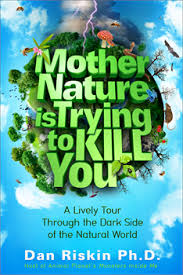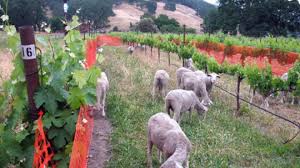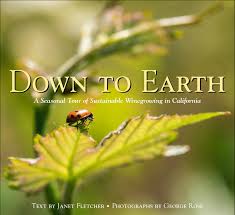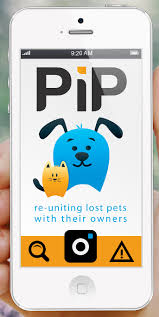Mother Nature Is Trying To Kill You
Dr. Dan Riskin
 Animal Planet's "Monsters Inside Me" host Dr. Dan Riskin is stirring up the airwaves with the truths about nature's ugly side. No wonder he so entertaining. Maggot eggs got into his brain and he lives to tell you why parasites really rule the world.
Animal Planet's "Monsters Inside Me" host Dr. Dan Riskin is stirring up the airwaves with the truths about nature's ugly side. No wonder he so entertaining. Maggot eggs got into his brain and he lives to tell you why parasites really rule the world.
Dan tells us that everybody loves nature. Everybody loves going outside and taking a breath of fresh air. However, a lot of people are missing out on the best parts of nature because they go in with these preconceived ideas about what nature is. They think that it's friendly and kind and will make you healthy. They think it's cuddly and that if you just get to know a grizzly bear, you could just stand next to it. While most of the animals out there really don't want to hurt you, they are just doing their own thing, the truth is that there are all sorts of venomous creatures out there; there are parasites; and there are predators.
He also says that the way animals treat each other is worse than anything humans can do. Its only when you look at the absolutely ugliest parts of nature, do you really see the most beautiful parts. His book, "Mother Nature Is Trying To Kill You," is an exploration of all the things you shouldn't talk about at the dinner table, and Dan talks about them in the language that he would have wanted to learn about it in he was twelve.
Dan uses the Seven Deadly Sins as a guide in his book. There's lust, and while humans have lust, there is a spider that will approach a female and she will try to eat him. His strategy is then to get as close to her as possible and use his two penises (yes - he has two, on the sides of his head) to mate with her. He then rips his own genitals off and makes a break for it because he knows he is about to die. But while he is running away, his genitals are doing their job procreating, while he is making a break for the outside of the web. If he is successful and gets away, he will stand (genital-less) just outside her reach and guard her against any other males that try to approach.
So why does the male even bother with the female in the first place? Scientists believe that for that spider to pass on its DNA, it has no choice, it has to mate. If it decides to sit this one out and not mate, then it will eventually die and not pass on its genes. So if an animal has a choice of survival or to reproduce, they always chose the reproduction route. Humans are also the same.
 Now, lets talk about cats. Dan explains that cats have a parasite where they pass eggs through their feces. A rat will then eat those eggs by accident. Then, a different cat needs to eat that rat, so the lifecycle can continue. This is the parasite that housecats normally get, called toxoplasmosis, that pregnant woman can get who clean litter boxes. So when the rat has this parasite, the parasite actually wants the rat to be eaten by a cat. However, rats are instinctively good at avoiding cats. If they smell cat urine, the scent of the urine will immediately send a signal to the fear centers in their brain and they will run away. But, if the rat has the parasite, the parasite will rewire the rat's brain. So, instead of the scent going to the fear center, the signal goes to the sexual arousal of the rat's brain. Now, rats actually get turned on by the smell of cat urine and will stick around the cat and eventually get eaten, which is what the parasite wants.
Now, lets talk about cats. Dan explains that cats have a parasite where they pass eggs through their feces. A rat will then eat those eggs by accident. Then, a different cat needs to eat that rat, so the lifecycle can continue. This is the parasite that housecats normally get, called toxoplasmosis, that pregnant woman can get who clean litter boxes. So when the rat has this parasite, the parasite actually wants the rat to be eaten by a cat. However, rats are instinctively good at avoiding cats. If they smell cat urine, the scent of the urine will immediately send a signal to the fear centers in their brain and they will run away. But, if the rat has the parasite, the parasite will rewire the rat's brain. So, instead of the scent going to the fear center, the signal goes to the sexual arousal of the rat's brain. Now, rats actually get turned on by the smell of cat urine and will stick around the cat and eventually get eaten, which is what the parasite wants.
Unfortunately this parasite can also get ingested accidentally by humans when cleaning litter boxes. If you're not a pregnant woman, you generally won't have any symptoms, but this parasite can really harm an unborn baby. So while most people won't even know they have this parasite, it can actually rewire their brains. This can cause your reaction time to go down, so you are more likely to die in a car accident. It also changes your personality in measurable ways. So if you have people take a standardized test, people who have this parasite will give different answers from those who don't have the parasite. This parasite can cause men to act more jealous and mistrusting, while women tend to be more kindhearted. Both sexes tend to be afraid to try new things. Surprisingly, one out of every eight American has it. There is also the thought that this parasite can be a huge link to schizophrenia, and that these people are far more likely to be harboring this parasite.
 This parasite is just one of the many parasites out there. When you make a list of every single type of animal being on the planet, more than half of the list is going to be of parasites. Think about it, every single animal you have seen in a nature documentary or even in your backyard feeder, is covered and full of parasites. This includes everything from penguins in Antarctica to panda bears in China. They all have tapeworms, ticks and mites.
This parasite is just one of the many parasites out there. When you make a list of every single type of animal being on the planet, more than half of the list is going to be of parasites. Think about it, every single animal you have seen in a nature documentary or even in your backyard feeder, is covered and full of parasites. This includes everything from penguins in Antarctica to panda bears in China. They all have tapeworms, ticks and mites.
In his new book, "Mother Nature Is Trying To Kill You," Dan reveals why our wonderful world is also a dangerous and disgusting, yet endlessly fascinating, one. At every turn, living things are trying to eat us, poison us, make our bodies their homes, or use us as unwitting couriers of their DNA and that's nothing compared to what they are doing to other animals! Nature is full of morally questionable behaviors that humans think of as "sinful." yet these transgressions are precisely what allow plants and animals to survive and thrive. Using the Seven Deadly Sins as a roadmap, Dan brings his expertise and enthusiasm to dozens of jaw-dropping tales about Mother Nature's not-so-gentle true colors.
http://pages.simonandschuster.com/dan-riskin
Animals In Vineyards
Sarah Cahn Bennett, Navarro Vineyards
 Sara Bennett's family business, Navarro Vineyards, is using little tiny sheep to keep the weeds under control. But that's not the only thing they do. Hal asks the hard-hitting questions like, "What sound does a sheep make ... and isn't that the same sound as a goat?"
Sara Bennett's family business, Navarro Vineyards, is using little tiny sheep to keep the weeds under control. But that's not the only thing they do. Hal asks the hard-hitting questions like, "What sound does a sheep make ... and isn't that the same sound as a goat?"
Sarah Cahn Bennett, who has a master's degree in viticulture and enology from the University of California at Davis, works at her family-run winery, Navarro Vineyards. Today, Navarro Vineyards produces 45,000 cases a year from Mendocino County grapes and sells most of them directly to consumers.
Joining a small but growing movement, Sarah family relies on sheep for some weed control. They began using a flock of 70 last year to keep the vineyard trimmed and minimize the work of tractors and manual labor. Today, they have 300 sheep working around 100 acres of vineyards.
The benefits are "more than you can count," she says. In winter and early spring, Navarro dairy sheep keep the vineyard cover crop sheared, adding a few degrees of frost protection. They fertilize as they graze and don't compact the soil as much as a tractor would.
Once the vines leaf out and become too tempting, these woolly weeders move to Navarro's ranchland, where their dining keeps the fire danger down.
Weed patrol in the vineyard then shifts to a new flock of sheep, called Babydoll sheep, which are small-stature breed. These sheep eat the grape leaves that are on the bottom of the vines, which would normally have to be removed by hand. The good thing is that they are only about 24-inches tall and too short to reach the grapes. In the fall, after harvest, sheep clean up the fallen leaf litter where insect pests like to spend the winter.
The use of sheep has also reduced their total diesel gasoline use and the sheep manure is great for the vines. In addition, sheep urine actually contains more nitrogen than their manure, but they both help growing the vines.
During the off months, the sheep contribute to a new family venture, Pennyroyal Farm, a solar-powered creamery and sheep and goat farm built on family property in Boonville. Sarah oversees a new vineyard on the parcel, while cheese maker Erika Scharfen runs the creamery. Using milk from the Pennyroyal goats, mixed with sheep's milk during its limited season, Scharfen makes both fresh and aged cheeses on an artisanal scale.
So what is the difference between a goat and a sheep? Goats and sheep, along with cows, are from the ruminant family. This is an even-toed ungulate mammal that chews the cud regurgitated from its rumen (the first compartment of its stomach). Other ruminant are antelopes, deer, giraffes, and their relatives.
Sarah explains that goats are more browsers while sheep are more grazers. So if you were using them on a hillside for weed control for fire prevention, goats would be better because they like to eat small shrubs and climb small trees. The sheep tend to go more for the grass.
Sheep and goats aren't for everyone, Sarah acknowledges. They must be managed and moved often to prevent overgrazing. They need pasture or costly dry feed when they're not in the vineyard. But at Navarro, they're an invaluable part of the crew.
 A majority of California wine is grown and produced using sustainable practices, and many wineries and vineyards are certified or seeking sustainable certification, because managing for the long term makes sense for the many family-owned vineyards and wineries that want to pass an on a thriving business to the next generation. Read about Navarro Vineyards, as well as Gallo Family Vineyards, J. Lohr Vineyards & Wines, Robert Mondavi Winery and many others in the book Down to Earth: A Seasonal Tour of Sustainable Winegrowing in California co-created by Wine Institute. You'll also find a dozen delicious wine-centric recipes, timed to what s fresh in the garden, to prepare at home as you enjoy this seasonal tour of sustainable winegrowing in California.
A majority of California wine is grown and produced using sustainable practices, and many wineries and vineyards are certified or seeking sustainable certification, because managing for the long term makes sense for the many family-owned vineyards and wineries that want to pass an on a thriving business to the next generation. Read about Navarro Vineyards, as well as Gallo Family Vineyards, J. Lohr Vineyards & Wines, Robert Mondavi Winery and many others in the book Down to Earth: A Seasonal Tour of Sustainable Winegrowing in California co-created by Wine Institute. You'll also find a dozen delicious wine-centric recipes, timed to what s fresh in the garden, to prepare at home as you enjoy this seasonal tour of sustainable winegrowing in California.
Wine Institute is the premier organization representing California wineries in the U.S. and around the world. With 1,000 California winery and affiliated business members, the organization initiates and advocates public policy that enhances the ability to responsibly produce, promote and enjoy wine. Wine Institute works to bolster the economic and environmental contributions of California's signature agricultural industry by encouraging sustainable winegrowing and winemaking practices.
http://www.wineinstitute.org
 The Dogfather's Grooming Tip with Joey Villani
The Dogfather's Grooming Tip with Joey Villani
Coloring Your Pet
If you really want to color your pet, you should leave it to a professional. But if you must do it yourself, listen up, as there is a right way and a wrong way.
For many years, people were encouraged to use coloring products that were meant for children on their pets. But now, the pet industry has coloring just for animals. Even though coloring products for children are safe, the products meant for our pets are even safer.
Even if you don't go to a groomer, ask them what they use. However, not all groomer will color animals.
When you color a pet, this could be something as simple as taking a dull black coat that may have some grey in the muzzle, and making it a rich black all over. Or, it may mean taking your pet and coloring them red, white and blue for the 4th of July.
If you do have a black dog, you should not try to add any color other than black. Other colors won't show up without bleaching the fur, which is highly not recommended.
 When coloring a black dog with black coloring, take some hydrogen peroxide in a sprayer, and lightly spray the part on the parts you want to color. What this will do is open up the hair shaft to allow the coloring to go in. Follow the directions for the color, apply it to your pet, let it sit on your pet according to the instructions, then rinse it off.
When coloring a black dog with black coloring, take some hydrogen peroxide in a sprayer, and lightly spray the part on the parts you want to color. What this will do is open up the hair shaft to allow the coloring to go in. Follow the directions for the color, apply it to your pet, let it sit on your pet according to the instructions, then rinse it off.
What the instructions may not mention is to put a conditioner on top of the new color . The conditioner will close the hair shaft back up.
If you have a light color dog, instead of just adding a light color, you can also add a splash of vibrant color.
Whatever you do, just be careful and follow the instructions and use pet safe colors only. And remember, it can get messy!
Animal Radio® News with Tammy Trujillo
 Spring Brings Toxic Plants
Spring Brings Toxic Plants
Spring is in the air, bringing with it warnings from the ASPCA about plants and flowers that are beautiful, but could be dangerous to your pets. Calla Lillies, Daffodils and geraniums are toxic to dogs and cats. Gardenia and oleander harmful to dogs, cats and horses. Regular Lillies can cause kidney failure in cats. The warning doesn't just cover your animal eating a part of the plant, but in some cases, the pollen can be dangerous as well.
Help Could Be On The Way If You Are Allergic To Cats!
The second phase of clinical trials for a new vaccine is done and the results are very promising. The third phase is now underway. If it's successful, the vaccine could be on the market within two years. You take just four doses over a 12-week period and it can reportedly keep your cat allergies at bay for as long as 2-years. And they're also working on an annual booster to keep it going. The new vaccine was developed at McMaster University in Hamilton, Ontario, Canada.
Pet Food Company Bashes Competitors
The makers of BLUE Brand Pet Food Products is being asked to change it's advertising to stop making negative comments about other pet food makers. The company says it will appeal the recommendation by the National Advertising Division. The claim was made by Hill's Pet Nutrition, the maker of Science Diet foods, over ads that were shown on TV, the Internet, in print and on mobile advertising. Hills claims that the ads convey the falsely disparaging and inflammatory message, that "big name" pet food manufacturers, including Hill's, are actively try to conceal the fact that they include chicken by-product meal, instead of meat, as the first ingredient. The NAD says it's ok for a company to tell consumers what is in their pet food, but cannot make unsupported claims that those products are less healthy, less safe or nutritionally inferior.
 There's An App For That!
There's An App For That!
If you are trying to find a lost pet, there is now an app for that. It's called PIP, short for Positive Identification of a Pet and it works like an AMBER Alert. It sends a missing pet notification to veterinarians and rescue agencies in the area where the pet was lost. You upload a photo of your missing pet to PIP and the app uses facial recognition to look for a match on websites that feature found animals, like shelters. PIP is free to download on iPhones but you do pay an annual fee to register your pet.
Dogs Detect Cancer Before Medical Testing
A dog's sense of smell is said to be 200,000 times better than humans. That's why dogs work detecting bombs, drugs and now they're being trained to use those fantastic noses to detect certain health issues, like the moment a person with diabetes starts to have a hyperglycemic incident. Now, researchers at a UK charity, Medical Detection Dogs, are working on training dogs to detect the odor of cancer. So far, dogs have been able to accurately detect three kinds of cancer, breast, lung and ovarian. Here's the coolest part, it appears they're able to make those detections before medical testing could.
HSUS Celebrates 60 Years
The Humane Society of the United States is celebrating its 60th anniversary this year. It was started in 1954 by a small group of people who wanted to protect animals, end slaughterhouse abuse and stop overbreeding. Today, the HSUS has millions of supporters, about 630 employees and a budget of 170-million dollars. Spokesman Alan Heymann says some of the battles they're waging today began six decades ago. Staging animal fights is now illegal in every state but breaking that law isn't always a felony and prosecutions are often a low priority. Still, the HSUS says more laws protecting animals have been passed in the last 10 years than any other decade in the society's history.
 Dog Dials 911
Dog Dials 911
It's always fun when we get a doggie 911 story. When emergency dispatchers in Sarpy County Nebraska picked up a recent call, all they heard were the sounds of breathing and scratching. It had them worried, until they found out the noises were coming from a dog that dialed 911. The dog's person says she thought her 2-pound Japanese Chin, Sophie, was trying to curl up next to her on the couch. She realized Sophie had actually pawed out 911 on her smartphone when she heard a voice from the phone asking for an "address of the emergency." This doggie 911 call was a first for the Sarpy County emergency operators.
Funeral Home Allows Pet Viewings
In 2011, six out of every 10 pet owners, or 62.3 percent, considered their pets family members. That's from the U.S. Pet Ownership and Demographics Sourcebook. Now a funeral home in central New York is expanding its business to offer a new service to pet owners, personalized pet cremations. Schepp Family Funeral Home will let people say good-by to their pet in a viewing room before the private cremation. Right now, when a pet dies, the veterinarian will hold the body till a service comes by to get remains. It's then part of a communal cremation with other animals where the ashes are divided up to be returned to the vet's office for pick-up. Schepp's cremations will ensure that pet owners get only the ashes of their individual dog, cat or other animal.

NEWS UPDATE brought to you by Drs. Foster & Smith, affordable pet supplies. Low prices every day, so you save on every order.
 Listen to the entire Podcast of this show (#749)
Listen to the entire Podcast of this show (#749)



 Animal Planet's "Monsters Inside Me" host Dr. Dan Riskin is stirring up the airwaves with the truths about nature's ugly side. No wonder he so entertaining. Maggot eggs got into his brain and he lives to tell you why parasites really rule the world.
Animal Planet's "Monsters Inside Me" host Dr. Dan Riskin is stirring up the airwaves with the truths about nature's ugly side. No wonder he so entertaining. Maggot eggs got into his brain and he lives to tell you why parasites really rule the world. Now, lets talk about cats. Dan explains that cats have a parasite where they pass eggs through their feces. A rat will then eat those eggs by accident. Then, a different cat needs to eat that rat, so the lifecycle can continue. This is the parasite that housecats normally get, called toxoplasmosis, that pregnant woman can get who clean litter boxes. So when the rat has this parasite, the parasite actually wants the rat to be eaten by a cat. However, rats are instinctively good at avoiding cats. If they smell cat urine, the scent of the urine will immediately send a signal to the fear centers in their brain and they will run away. But, if the rat has the parasite, the parasite will rewire the rat's brain. So, instead of the scent going to the fear center, the signal goes to the sexual arousal of the rat's brain. Now, rats actually get turned on by the smell of cat urine and will stick around the cat and eventually get eaten, which is what the parasite wants.
Now, lets talk about cats. Dan explains that cats have a parasite where they pass eggs through their feces. A rat will then eat those eggs by accident. Then, a different cat needs to eat that rat, so the lifecycle can continue. This is the parasite that housecats normally get, called toxoplasmosis, that pregnant woman can get who clean litter boxes. So when the rat has this parasite, the parasite actually wants the rat to be eaten by a cat. However, rats are instinctively good at avoiding cats. If they smell cat urine, the scent of the urine will immediately send a signal to the fear centers in their brain and they will run away. But, if the rat has the parasite, the parasite will rewire the rat's brain. So, instead of the scent going to the fear center, the signal goes to the sexual arousal of the rat's brain. Now, rats actually get turned on by the smell of cat urine and will stick around the cat and eventually get eaten, which is what the parasite wants. This parasite is just one of the many parasites out there. When you make a list of every single type of animal being on the planet, more than half of the list is going to be of parasites. Think about it, every single animal you have seen in a nature documentary or even in your backyard feeder, is covered and full of parasites. This includes everything from penguins in Antarctica to panda bears in China. They all have tapeworms, ticks and mites.
This parasite is just one of the many parasites out there. When you make a list of every single type of animal being on the planet, more than half of the list is going to be of parasites. Think about it, every single animal you have seen in a nature documentary or even in your backyard feeder, is covered and full of parasites. This includes everything from penguins in Antarctica to panda bears in China. They all have tapeworms, ticks and mites. A majority of California wine is grown and produced using sustainable practices, and many wineries and vineyards are certified or seeking sustainable certification, because managing for the long term makes sense for the many family-owned vineyards and wineries that want to pass an on a thriving business to the next generation. Read about Navarro Vineyards, as well as Gallo Family Vineyards, J. Lohr Vineyards & Wines, Robert Mondavi Winery and many others in the book Down to Earth: A Seasonal Tour of Sustainable Winegrowing in California co-created by Wine Institute. You'll also find a dozen delicious wine-centric recipes, timed to what s fresh in the garden, to prepare at home as you enjoy this seasonal tour of sustainable winegrowing in California.
A majority of California wine is grown and produced using sustainable practices, and many wineries and vineyards are certified or seeking sustainable certification, because managing for the long term makes sense for the many family-owned vineyards and wineries that want to pass an on a thriving business to the next generation. Read about Navarro Vineyards, as well as Gallo Family Vineyards, J. Lohr Vineyards & Wines, Robert Mondavi Winery and many others in the book Down to Earth: A Seasonal Tour of Sustainable Winegrowing in California co-created by Wine Institute. You'll also find a dozen delicious wine-centric recipes, timed to what s fresh in the garden, to prepare at home as you enjoy this seasonal tour of sustainable winegrowing in California.  The Dogfather's Grooming Tip with
The Dogfather's Grooming Tip with  When coloring a black dog with black coloring, take some hydrogen peroxide in a sprayer, and lightly spray the part on the parts you want to color. What this will do is open up the hair shaft to allow the coloring to go in. Follow the directions for the color, apply it to your pet, let it sit on your pet according to the instructions, then rinse it off.
When coloring a black dog with black coloring, take some hydrogen peroxide in a sprayer, and lightly spray the part on the parts you want to color. What this will do is open up the hair shaft to allow the coloring to go in. Follow the directions for the color, apply it to your pet, let it sit on your pet according to the instructions, then rinse it off.  Spring Brings Toxic Plants
Spring Brings Toxic Plants
 There's An App For That!
There's An App For That!
